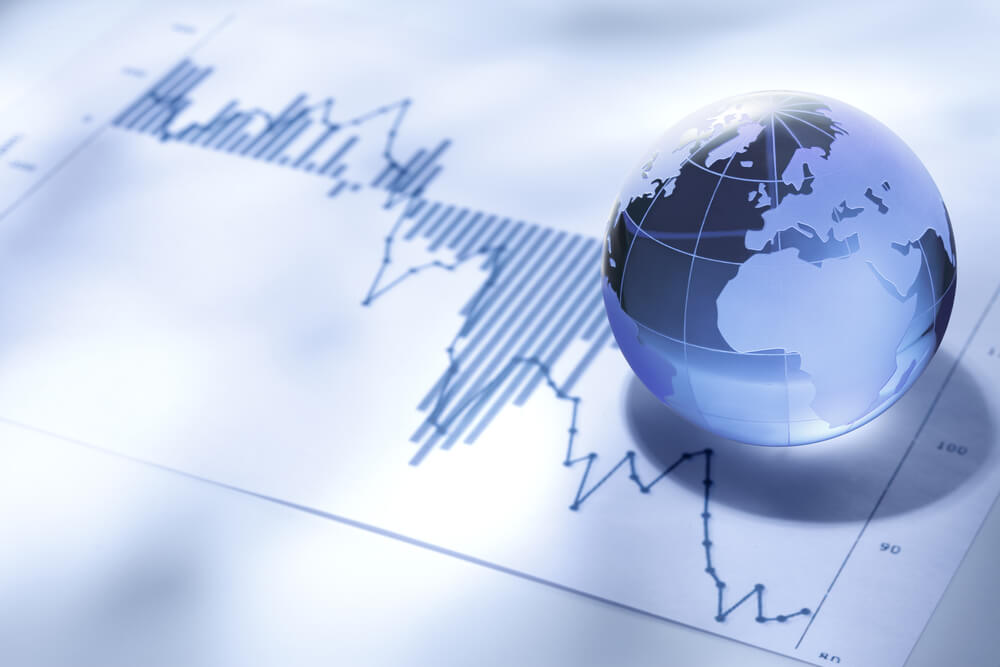RANCHO SANTANA, NICARAGUA — Monday, we watched the screen. The Dow was down 850 points at 11 a.m. By noon, it had lost another 50 points. By 1 p.m., it was down 1,000 points.
Now it was getting peoples’ attention. By the close of the trading day, the market sell-off had become mainstream news. CNBC:
The Dow Jones Industrial Average closed down 1,031 points, or 3.55%, at 27,960. The S&P 500 slid 3.4% to finish at 3,225, while the Nasdaq Composite closed 3.7% lower at 9,221.
It was the Dow’s biggest point and percentage-point drop since February 2018. The Dow also gave up its gain for 2020. The S&P 500 also had its worst day in two years and wiped out its year-to-date gain.
“The second-largest economy in the world is completely shut down. People aren’t totally pricing that in,” said Larry Benedict, the CEO of The Opportunistic Trader, adding a 10% to 15% correction in stocks may be starting. He also said some parts of the market, particularly large-cap tech stocks, appear to be over-owned. “It seems like there’s much more to come.”
What will sink the U.S. stock market, we don’t know. But something will.
When it will happen, we don’t know that either. But some time it will.
And then what?
World of Doubt and Ignorance
Thank God for “like.” “Is” is okay for science, technology, and math and simple things, such as two plus two is four.
But if you want to know why stock prices are falling… why you didn’t get a raise… why your wife is mad at you… or why the country is going to hell in a handcart, you need the comparative preposition, “like.”
Like is useful even for things you’ve never personally experienced. This morning, for example, you may feel like you are 90 years old. You know what that means, even if you’ve never been 90 years old.
“Like” is what connects us to the uncertain world we live in… a world of doubt and ignorance. It’s a world where we know next to nothing for sure.
And yet, there are recurring patterns. Which is where “like” comes in.
“Like” is how we recognize when it is getting cold… it feels like it. And how we know someone is being a complete jackass… because he acts like a complete jackass. It is when we know it is time to get out of the stock market or leave a party… because it feels like it’s time to go.
This morning, we are looking at a lot of charts… and all show a familiar pattern. Lines bounce and bop… for months, years… and then, suddenly, drop in a straight line.
Most of those charts come from the Far East… where we see everything seems to be dropping like a stone in a well. But the Far East is now the world’s largest economic bloc. And what happens there is not likely to stop at the Yangshan Deep Water Port Terminal.
If It Looks Like a Duck…
There’s trouble afoot, in other words. And afloat. On cruise ships. And on freight ships.
The coronavirus is no threat to the human race. It could run around the world, killing 2% of the population, and almost everything would still function as before. Two percent is marginal. On the Monday after the Super Bowl, for example, some 11% of the entire American labor force didn’t show up to work.
But nobody wants to be one of the two-per-hundred who drop dead. So, they avoid public places. They call in sick from work. They don’t go shopping.
The U.S. economy only grows by about 2% per year. But that’s with all the switches on. Now, imagine the shopping malls are shuttered. Imagine there are no football games. Imagine that people refuse to go to work at all… or refuse to board an airplane…
…What would happen to airline stocks? To retailers? To restaurant chains?
Imagine that the whole economy is locked down, like much of China. Then what? Sales, profits, earnings — all collapse. Imports, exports… restaurants, movie theaters, bus stations — all empty out… airports, too.
What you have then is not just a setback; it’s like a depression. CNN:
The coronavirus continues to spread, and there are signs that some of the world’s top economies could slide into recession as the outbreak compounds pre-existing weaknesses.
It’s those “pre-existing weaknesses,” that we’ve been writing about in these diaries. But the stock market is priced as though there were no weaknesses at all.
Or to put it another way, there are so many pre-existing weaknesses that any infection is likely to be fatal. That it is what it was like in 2000… or what it was like in 2008.
“Like” is not as precise or as reliable as “is.” But in love, war, politics, and economics… it’s the best we can do.
As the lawyers say, if it looks like a duck, if it waddles like a duck… and it quacks like a duck… dammit… it is a duck.
Whether this is a duck, we don’t know. But we’ll keep the orange sauce at-the-ready.
Stay tuned.
Regards,
Bill
• This article was originally published by Bonner & Partners. You can learn more about Bill and Bill Bonner’s Diary right here.
